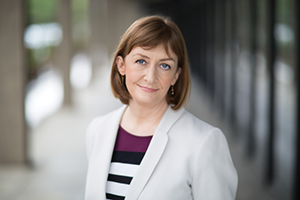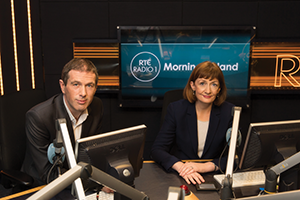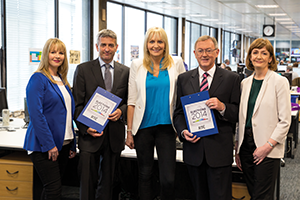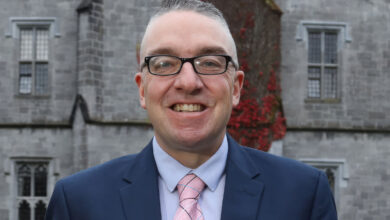Meet the media

Rachael English
RTÉ Radio 1’s Morning Ireland presenter Rachael English discusses her 25 year career as a broadcast journalist.
Was journalism always your preferred career?
Yes, but I saw myself as a writer and hoped to work in print. When I was at school in Shannon, it never even occurred to me that you could work in radio. Then, I went to Dublin City University where I studied communications and discovered broadcasting. I loved it. To be honest, when I left college in 1989 it was also easier to get a job in local radio than in a local paper. A lot of stations were starting up at that time and were willing to give a chance to somebody with relatively little experience. My first job was as a reporter with Clare FM in Ennis.
You’ve worked in all sections of the media. Which area has been your favourite?
I’m very fond of Morning Ireland. Apart from the high listenership and the fact that you get the first crack at the day’s main news, there’s a strong collegiate atmosphere on the programme which appeals to me. Otherwise, my favourite time in journalism was during the 1990s when I spent four years as a reporter and stand-in presenter on the News at One. Those were fascinating years with far-reaching changes taking place in Ireland and around the world.
How much has journalism changed since you began your career?
I suppose it would be surprising if there hadn’t been huge changes over twenty-five years. The most obvious ones are technology-lead. When I started work, twenty-four hour news was still in its infancy, mobile phones were rare and the internet was unheard of. People are now getting their news in ways we couldn’t have imagined in the 1980s. In radio too, the technology had changed enormously. In my early years as a reporter, we were still recording on cassette and editing on quarter inch tape.

What stories have been most memorable to work on? 
Where do I start? If I had to pick one absolute standout day it would be the signing of the Good Friday Agreement in April 1998. It was a privilege to be at Stormont for that. In terms of sheer enjoyment, covering the Athens Olympics in 2004 was a highlight for me, perhaps because it was so different from my normal beat. Since 2002, I’ve co-hosted all of RTE radio’s election results programmes, so those days, and nights, are also on the list. My most memorable experience on Morning Ireland – so far – has been interviewing the Central Bank Governor, Patrick Honohan, on the morning he announced that Ireland would need an IMF bailout. Often, though, the interviews that linger in your memory are not the ones with the powerful or famous but the ones where previously unknown people are willing to share their story.
What career ambitions have you left to fulfil?
I’ve never really had specific ambitions. Instead, I always try to give as much as I can to what I’m doing and to make the most of the opportunities that come my way. Some of the jobs I’ve enjoyed most are ones that I ended up doing by accident. For instance, I went to Morning Ireland for three weeks to cover another presenter’s holidays, and I’m still there more than four years later. In my experience, the more plans you have, the less likely they are to come to fruition.
How do you relax outside work?
A few years ago, I started writing fiction. To begin with, it was simply a way of relaxing. Now that I’ve had two novels ‘Each and Every One’ and ‘Going Back’ published and am writing a third, it’s more like a second career. In many ways, writing is just as challenging as broadcasting, but the challenges are very different, so I still find it quite relaxing. There’s also something enjoyable about finally fulfilling my teenage ambition to write for a living, albeit in a different way than I’d imagined.





